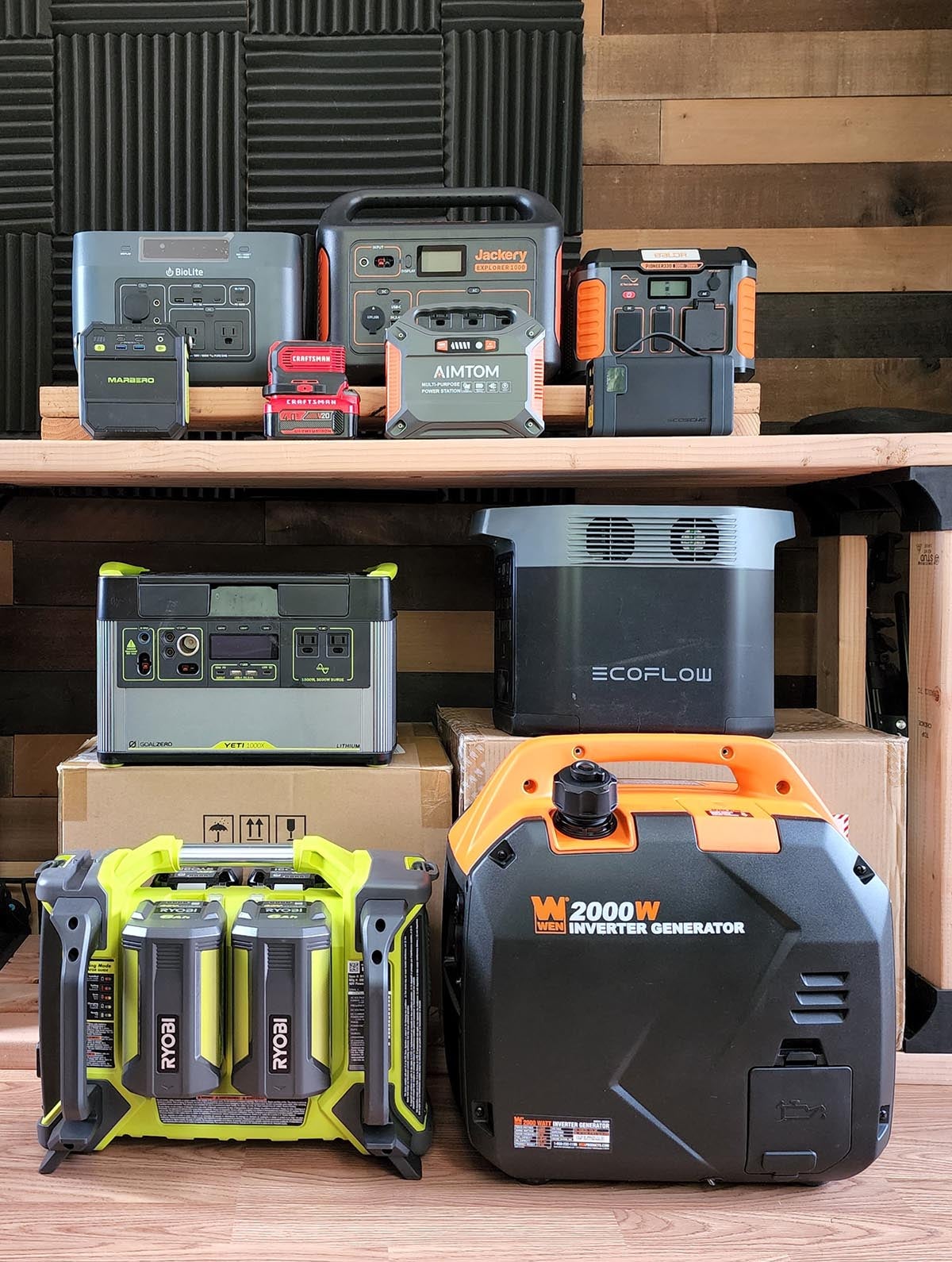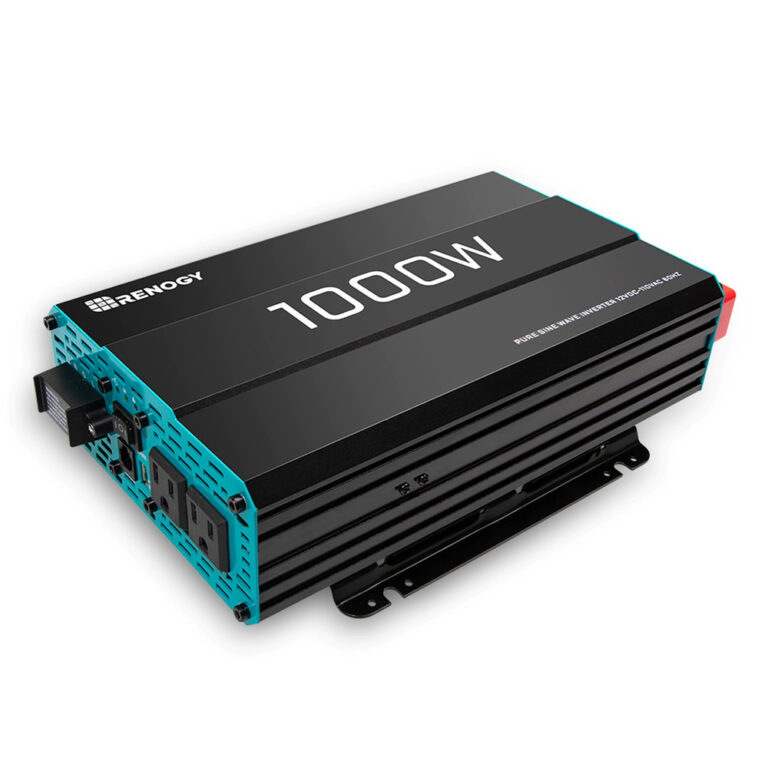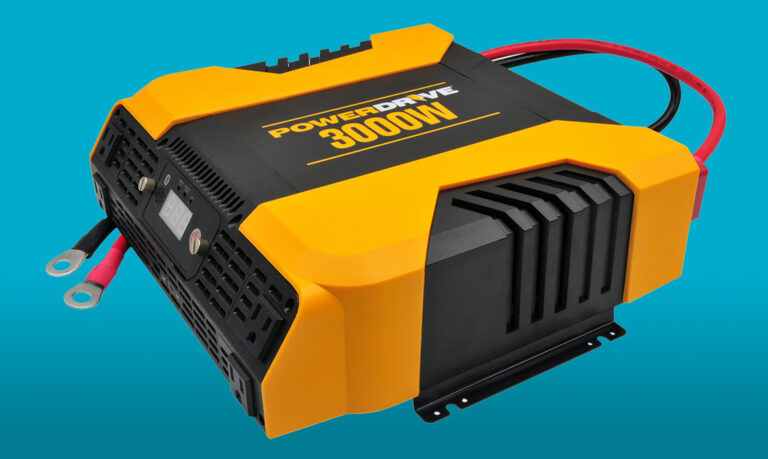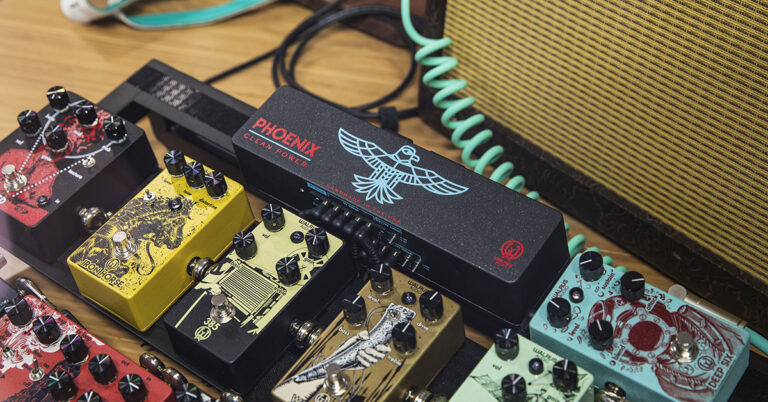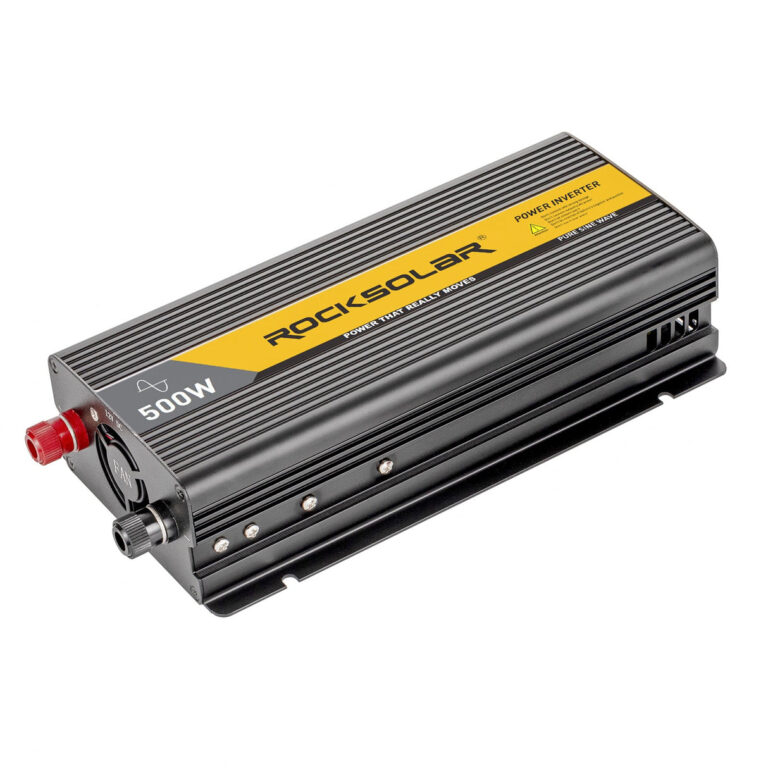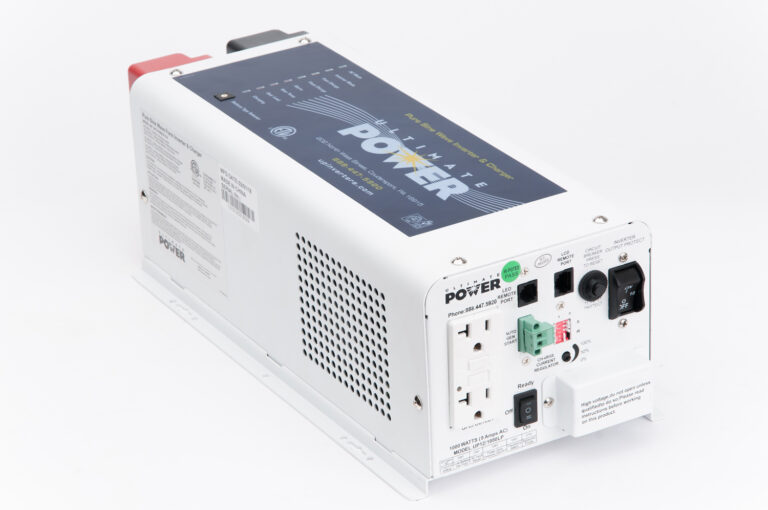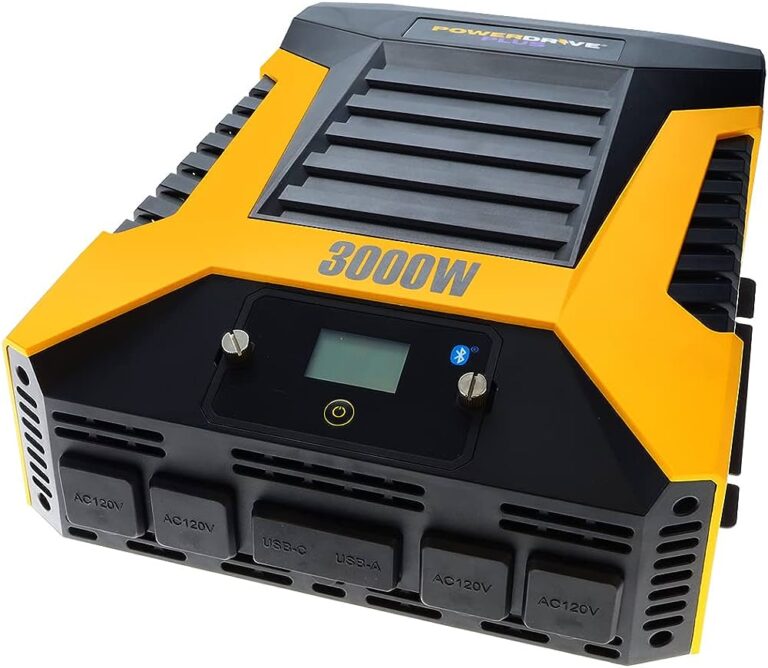Power Inverter Vs Portable Generator: Choose the Right Power Source
A power inverter converts DC power from a battery into AC power, while a portable generator produces AC power through an engine running on fuel. Both power inverters and portable generators provide a source of electrical power when traditional outlets are not available.
Power inverters are more compact and convenient for powering small electronic devices on the go, while portable generators are better suited for powering larger appliances and equipment. However, power inverters have limited power output and are dependent on a battery for energy, whereas portable generators can provide higher power output and longer run times but require fuel for operation.
Ultimately, the choice between a power inverter and a portable generator depends on the specific power needs and usage scenario.
Understanding Power Inverters And Portable Generators
Understanding the difference between power inverters and portable generators is essential. While power inverters convert DC power to AC power for smaller devices, portable generators produce AC power using fuel. Both have unique advantages and are suitable for different situations.
Power inverters and portable generators are essential tools for providing electrical power in various situations. Whether you’re camping in the great outdoors, experiencing a power outage, or needing electricity on the go, it’s important to understand the differences between these two devices to make an informed decision.
In this section, we’ll explore what power inverters and portable generators are, how they function, and the features that set them apart.
What Is A Power Inverter?
A power inverter is a device that converts direct current (DC) power, typically from a battery, into alternating current (AC) power. AC power is what you typically find in your home’s electrical outlets, making it compatible with various appliances and electronics.
Power inverters are popularly used in vehicles, RVs, boats, and off-grid systems where DC power sources, such as batteries or solar panels, are available.
The function and features of a power inverter include:
- Provides a source of AC power in situations where it’s not readily available
- Allows you to use your electronic devices and appliances when you’re away from traditional power sources
- Various sizes and power outputs available to match specific power needs
- Some power inverters have built-in safety features like overload protection and low voltage shutdown
- Portable and compact design, making them easy to transport and use anywhere
- Noise-free operation compared to portable generators
- Inexpensive alternative for powering small devices and gadgets
How It Converts Dc To Ac Power:
To convert DC to AC power, power inverters use a series of electronic components and circuits. Here’s a breakdown of the conversion process:
- Step 1: The power inverter receives direct current (DC) power from a battery or another DC power source.
- Step 2: The DC power is passed through an electronic component called an inverter bridge. This bridge converts the DC power into a pulsating current.
- Step 3: A filter in the power inverter smooths out the pulsating current, resulting in a sine wave or modified sine wave AC power output.
- Step 4: The AC power is then ready to be used by your devices and appliances, providing them the same type of power they would receive from a traditional electrical outlet.
What Is A Portable Generator?
A portable generator is a power source that generates electrical energy by using a fuel-powered engine or batteries. Unlike power inverters, portable generators produce AC power without the need for an existing DC power source. These versatile devices are commonly used in remote locations, construction sites, outdoor events, and during emergencies where a reliable power supply is vital.
An overview of portable generators includes:
- Engines can be powered by gasoline, propane, diesel, or natural gas, providing various options depending on fuel availability and preference
- Available in different sizes and power outputs to meet different energy demands
- Can power a wide range of appliances and devices simultaneously
- Some portable generators feature advanced features like electric start, remote control, and automatic voltage regulation
- Provides continuous power without relying on batteries or a limited DC power source
How They Generate Ac Power Using Fuel Or Batteries:
Portable generators work on the principle of electromagnetic induction to generate AC power. Here’s a simplified explanation of the process:
- Step 1: The engine of the portable generator spins an alternator or generator coil.
- Step 2: As the coil spins, a magnetic field is produced within the generator’s core.
- Step 3: This magnetic field induces an alternating current (AC) in the conductive coils surrounding the generator core.
- Step 4: The AC power generated is then available for use, providing electricity to connected devices and appliances.
Whether you choose a power inverter or portable generator, both options offer unique advantages and cater to different power needs. By understanding their functions, features, and abilities to convert DC to AC power, you can make an informed decision on which device best suits your requirements.
Pros And Cons Of Power Inverters
A power inverter and a portable generator both have their advantages and disadvantages. Power inverters are quieter and portable, making them suitable for small electronic devices. On the other hand, portable generators provide more power, but they can be noisy and require fuel.
Advantages Of Power Inverters
Power inverters offer several advantages for those in need of portable power solutions. Here are some key benefits:
- Portable and lightweight design: Power inverters are compact and easy to carry, making them highly portable. Their lightweight construction allows for easy transportation, whether you’re on a camping trip, at a job site, or experiencing a power outage.
- Suitable for low power requirements: Power inverters are perfect for low power needs, such as charging electronic devices, running small appliances, or powering lighting systems. They provide a reliable source of electricity for everyday use in various settings.
- Environmentally friendly: Power inverters are considered to be environmentally friendly due to their ability to convert stored DC power from batteries or solar panels into standard AC power. By reducing the use of fossil fuel generators, they help decrease harmful emissions and contribute to a greener planet.
Limitations Of Power Inverters
While power inverters offer convenience and flexibility, they also have a few limitations to consider before making a purchase. Here are the key drawbacks:
- Limited power output: Compared to portable generators, power inverters have a relatively limited power output capacity. They are designed to handle lower power requirements and may struggle to provide sufficient electricity for high-demand appliances or heavy-duty equipment.
- Not ideal for high-demand appliances: Power inverters are not recommended for powering high-demand appliances like air conditioners, refrigerators, or power tools that require a significant wattage. These energy-intensive devices can exceed the power capacity of most inverters, causing them to overload and potentially damaging the inverter or connected devices.
- Battery drain and charging concerns: Power inverters rely on battery power to produce electrical output. Extended use of the inverter can drain the battery, leading to a decreased power supply over time. Additionally, recharging the battery can be time-consuming, depending on the charging method used. It’s essential to carefully manage battery capacity and have a backup power source available.
Power inverters offer portability, low-power capability, and eco-friendliness; however, their limitations include limited power output, unsuitability for high-demand appliances, and battery drain concerns. Consider your specific power needs and usage requirements before deciding between a power inverter and a portable generator.
Pros And Cons Of Portable Generators
The Pros and Cons of Portable Generators, specifically comparing Power Inverters and Portable Generators, allow for flexibility in power supply but can be noisy and require fuel for operation. It is important to weigh the advantages and disadvantages to determine which option best suits your needs.
Benefits Of Portable Generators
- Portable generators offer a high power output capacity, making them ideal for powering a wide range of appliances and devices. Whether you need to run your air conditioner during a summer blackout or charge your electronics while camping, a portable generator has got you covered.
- Versatility is another major advantage of portable generators. With multiple outlets and different wattage options, you can easily connect various appliances, from small gadgets to larger power tools. This versatility ensures that you can use your generator in different settings and for different purposes.
- Continuous power supply is crucial in situations where a reliable power source is essential. Portable generators can provide a continuous supply of electricity, allowing you to keep essential appliances running without interruption. This is especially important during natural disasters or when living in remote areas with frequent power outages.
Drawbacks Of Portable Generators
- One of the main drawbacks of portable generators is their size and noise level. These generators tend to be bulky and can take up significant space in your living area or storage. Additionally, they generate noise while in operation, which can be bothersome, especially if you plan to use them in residential areas or campsites.
- Another consideration is the fuel or battery limitations of portable generators. Many models rely on gasoline, which means you’ll need to have a steady supply on hand. If you’re in a remote location or during fuel shortages, this can be a challenge. Some generators offer alternative power options, such as propane or battery-powered models, but they may have their own limitations.
- Lastly, emission concerns should be taken into account when using portable generators. Traditional models emit exhaust gases, primarily carbon dioxide, which can be harmful to the environment. If you’re concerned about emissions and their impact, it’s important to explore more environmentally-friendly options, such as models with lower carbon footprint or cleaner energy sources.
Portable generators come with their own set of benefits and drawbacks. They offer high power output capacity, versatility for various appliances, and continuous power supply. However, they can be bulky and noisy, have fuel or battery limitations, and raise emission concerns.
Understanding these factors will help you make an informed decision on whether a portable generator is the right choice for your needs.
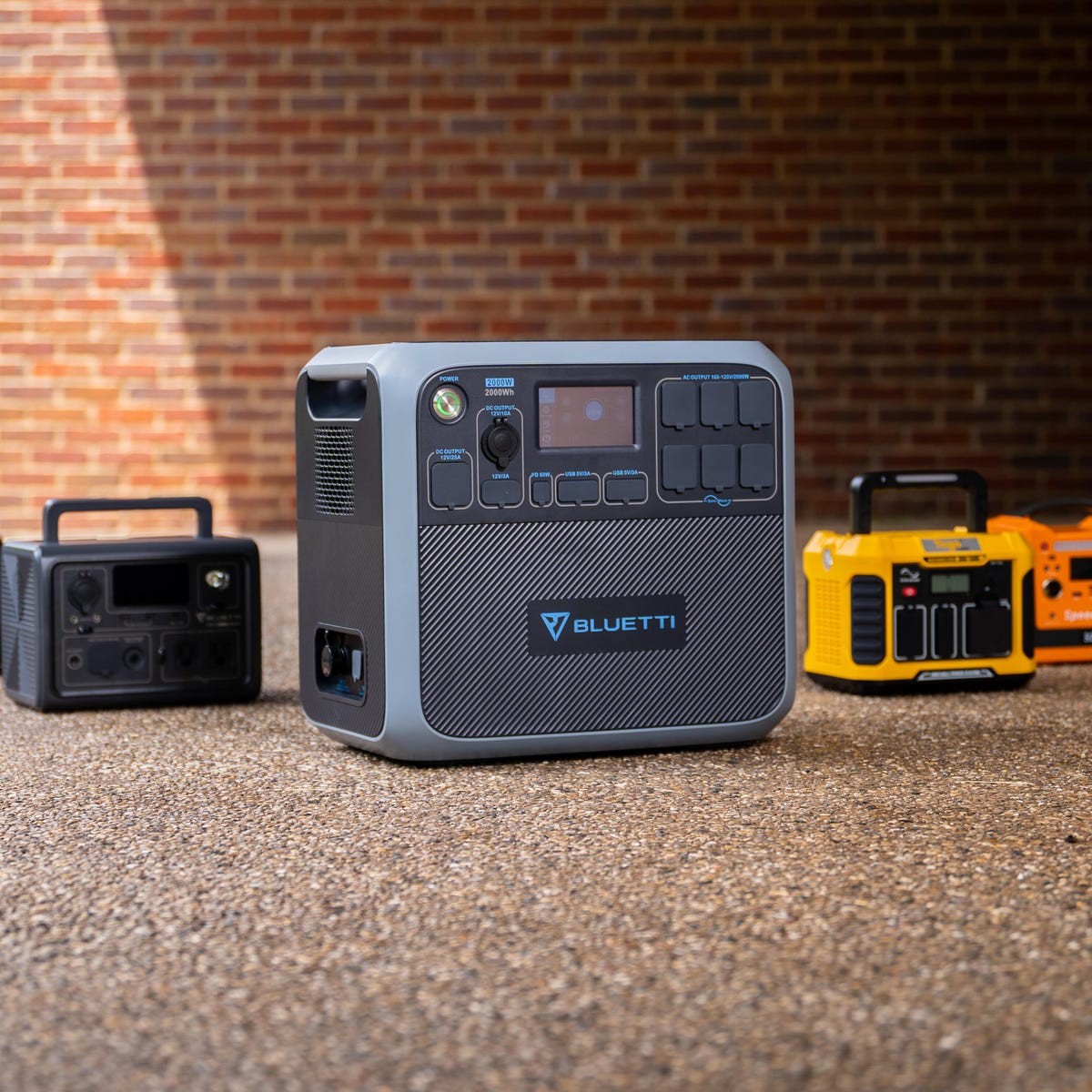
Credit: www.cnet.com
Factors To Consider When Choosing A Power Source
Choosing the right power source can be a crucial decision. When comparing power inverters and portable generators, factors like power output, portability, and fuel efficiency are key considerations.
Power requirements and load capacity:
- Assessing the electrical needs: Before making a decision, it is essential to evaluate your power requirements. Consider the devices and appliances you plan to use and their power consumption. Determine the total wattage needed to operate them simultaneously.
- Determining the suitable power source: Once you have assessed your electrical needs, you can choose between a power inverter and a portable generator. Understanding their load capacity is vital to ensure that your chosen power source can handle the required wattage.
Portability and convenience:
- Considering the mobility and ease of transport: If you require a power source for outdoor activities, portability is crucial. A power inverter is lightweight and compact, making it easier to carry and handle. On the other hand, a portable generator may be bulkier and heavier, requiring additional effort to transport.
- Assessing the portability features of the power source: Look for features such as handles, wheels, and foldable designs that enhance the portability of a power source. These considerations are especially important if you intend to move the power source frequently or if you have limited physical strength.
Noise level and environmental impact:
- Comparing the noise levels: Noise can be a significant factor, especially in quiet environments or when using the power source for camping or outdoor events. Power inverters generally produce less noise compared to portable generators. Consider this aspect if noise pollution is a concern.
- Evaluating the environmental impact of each power source: Consider the environmental impact of your chosen power source. Power inverters typically generate electricity through clean energy sources and have minimal environmental impact. Portable generators, however, may emit harmful fumes and contribute to air and noise pollution.
By carefully considering factors such as power requirements and load capacity, portability and convenience, and noise level and environmental impact, you can make an informed decision when choosing between a power inverter and a portable generator. Remember to assess your specific needs and prioritize the factors that align with your requirements to find the ideal power source for your situation.
Applications And Use Cases
Power inverters and portable generators are both reliable sources of power for various applications. While power inverters are compact and ideal for small electronic devices, portable generators offer more power and versatility for larger appliances and outdoor activities. Choose the right option based on your power needs and preference.
Portable power solutions are a must-have for those looking to stay connected while on the go or in the case of a power outage. Power inverters and portable generators are two popular options that provide the necessary electricity to charge devices or run appliances.
Understanding their applications and use cases can help you determine which option is best suited for your needs. In this section, we will explore the usage scenarios for power inverters and the use cases for portable generators, providing you with valuable insights to make an informed decision.
Power Inverter Usage Scenarios:
- Camping and Outdoor Activities:
- Powering small appliances: Power inverters are perfect for camping trips as they can power various small appliances such as mini fridges, portable stoves, or even electric grills, ensuring you enjoy delicious meals while embracing the great outdoors.
- Lighting and entertainment: Whether you need lighting inside your tent or want to power speakers for some outdoor entertainment, a power inverter can provide the necessary electricity to keep the fun going.
- Charging small electronic devices: From smartphones to tablets and cameras, power inverters allow you to keep your essential gadgets charged, ensuring you capture precious moments or stay connected with loved ones even in remote locations.
Portable Generator Use Cases:
- Backup Power for Homes or Buildings:
- Seamless power supply: In the event of a power outage, portable generators offer a reliable backup power solution, ensuring uninterrupted electricity supply for essential appliances like refrigerators, air conditioning units, or medical equipment, keeping you comfortable and safe.
- Emergency situations: Portable generators can provide power during natural disasters or emergencies, enabling you to run critical appliances and stay connected with the outside world.
- Running Large Appliances or Tools:
- Construction sites and workshops: Portable generators are indispensable in these settings, powering heavy-duty tools like drills, saws, or air compressors, making it convenient for construction workers or craftsmen to complete their tasks efficiently.
- Outdoor events or mobile businesses: Whether it’s a wedding party in a remote location or a food truck business, portable generators can keep the lights on, music playing, and equipment running smoothly, ensuring a successful event or thriving business.
By understanding these usage scenarios and use cases for power inverters and portable generators, you can easily identify which option suits your specific needs and embark on your next adventure or confidently face unexpected power outages. So, whether you are planning a camping trip or looking for backup power for your home or business, there is a portable power solution waiting to meet your requirements.
Cost And Maintenance Considerations
Cost and maintenance considerations play a crucial role in deciding between a power inverter and a portable generator. Both options come with their unique expenses and upkeep requirements, making it necessary to carefully weigh the financial implications before making a decision.
Power Inverter Vs Portable Generator:
When it comes to choosing between a power inverter and a portable generator, cost and maintenance considerations play a crucial role. Understanding the upfront costs and maintenance requirements is essential for making an informed decision. In this section, we will compare the price range of power inverters and portable generators, as well as discuss their respective maintenance needs.
Upfront Cost Comparison
Here, we will explore the upfront cost differences between power inverters and portable generators.
- Power inverters:
- Price range typically varies between $100 – $1000, depending on the power capacity and brand.
- Lower-priced power inverters usually have a lower wattage capacity, making them suitable for smaller electronic devices.
- Higher-priced power inverters offer greater wattage capacity, enabling them to power larger appliances and tools.
- Portable generators:
- Price range generally falls between $300 – $5000, depending on the power output and features.
- Lower-priced portable generators are usually compact and lightweight, suitable for camping or emergency use.
- Higher-priced portable generators offer higher power output and additional features like electric start, multiple outlets, and longer runtime.
Maintenance Requirements
In terms of maintenance, power inverters and portable generators have distinct needs. Let’s explore their requirements individually.
Understanding The Maintenance Needs
- Power inverters:
- Minimal maintenance needed as they do not have engines or moving parts.
- Regularly inspect for loose connections, frayed cords, or signs of wear.
- Clean the unit periodically to remove dust and debris that can affect performance.
- Portable generators:
- Regular maintenance is essential to ensure optimal performance and longevity of the unit.
- Follow the manufacturer’s instructions for regular oil changes, air filter cleaning/replacement, and spark plug inspection/replacement.
- Maintain proper fuel levels and use fuel stabilizers to prevent fuel deterioration.
- Store the generator in a clean, dry location to protect it from dust and moisture.
Cost Of Fuel And Battery Replacements
- Power inverters:
- Since power inverters rely on the vehicle’s battery, there are no additional fuel or battery costs.
- However, a power inverter may drain the vehicle’s battery if used for an extended period without the engine running.
- Portable generators:
- Portable generators require fuel to operate.
- The cost of fuel depends on the generator’s fuel type, with gasoline being the most common and readily available.
- Battery-powered generators may require occasional battery replacements, adding to the maintenance costs.
When comparing the upfront costs and maintenance considerations of power inverters and portable generators, it is important to consider factors such as power capacity, intended use, and the level of maintenance you are willing to undertake. Understanding the costs associated with fuel and battery replacements, as well as the maintenance requirements for each option, will help you make an informed decision based on your specific needs.
Frequently Asked Questions On Power Inverter Vs Portable Generator
Which Is Better Inverter Or Portable Generator?
Inverter generators are better than portable generators due to their efficiency, lower noise levels, and clean energy output.
What Are The Disadvantages Of An Inverter Generator?
Inverter generators have a few disadvantages such as higher initial cost and potential for noise.
Can You Use An Inverter Instead Of A Generator?
Yes, you can use an inverter instead of a generator for providing power in certain situations.
Do Inverter Generators Last As Long As Regular Generators?
Inverter generators typically have a similar longevity as regular generators.
Conclusion
To sum up, both power inverters and portable generators have their unique advantages and disadvantages. Power inverters are compact, lightweight, and provide a convenient source of power for small electronic devices. They are ideal for camping trips, road trips, and other situations where portability is essential.
On the other hand, portable generators are more powerful and can provide a continuous source of electricity for a wider range of appliances and tools. They are perfect for emergencies, construction sites, and outdoor events. When choosing between a power inverter and a portable generator, it is crucial to consider your specific power needs, budget, and the level of convenience you require.
Regardless of your choice, both options offer reliable solutions for powering your devices when you are off the grid. So, whether you are a camper, a contractor, or a homeowner looking for a backup power source, weigh the pros and cons of each option and select the one that best suits your needs.

